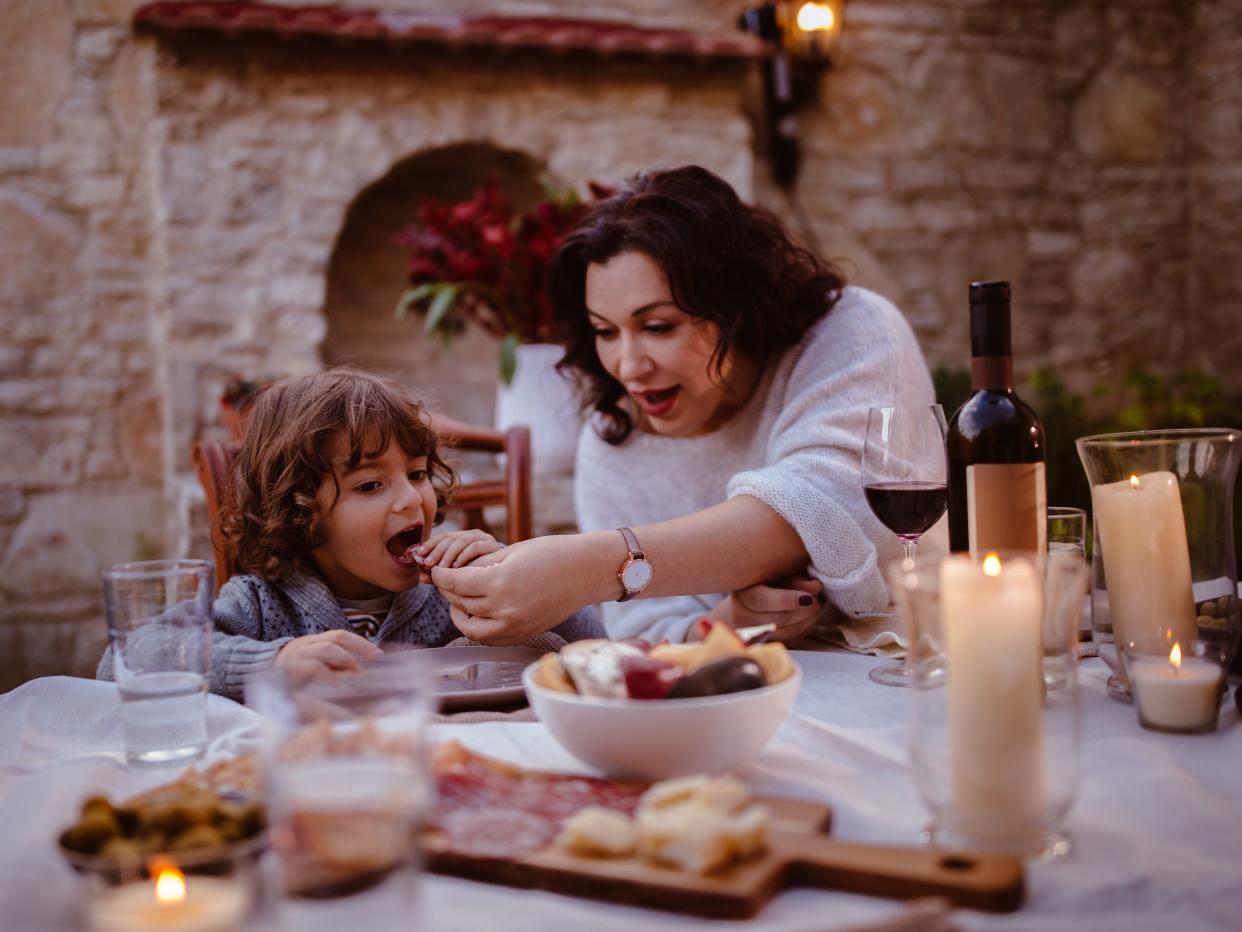I'm American and my husband is Spanish. We are raising our child with both cultures.

I'm American and my husband is Spanish. We spent time between the two countries.
Our 5-year-old daughter is being raised with both cultures.
Kids in Spain speak multiple languages, including local dialects, and kids behave at meal time.
I'm American, and my husband is Spanish. We have a 4-year-old daughter and spend time in both countries, immersing ourselves in both cultures. My daughter is being raised as an American but with the cultural inputs from her time in Spain.
The city we live in in Spain — Zaragoza — is a vibrant midsize city full of families, which was part of the appeal of our part-time move. In addition, it is where my husband grew up.
I've noticed some differences between Spanish kids and American kids.
Kids often speak multiple languages
My daughter has made some friends in Spain already, and we're so impressed by their ability to speak multiple languages. These kids are learning French, Spanish, English, and even Catalan in school. I'm blown away by their inherent ability to tackle these languages at a young age.
But the standard of education also seems to be higher in Spain. My husband likes to tell me that he never saw a multiple-choice test before he came to the US and jokes that in math, they used a pen and not a pencil, so there were no erasing mistakes. This makes him sound so old, but really, I think the schools in Spain are just more old-fashioned.
There's an emphasis on mealtime being family time
In Spain, kids are taught to be seen and not heard. I'm on the fence about whether this is a positive or negative thing, but I'll admit I've seen more poorly behaved-kids in the US than in Spain. I hate seeing parents plug their kids into tablets or cellphones, something that never happens with Spanish kids.
Even the toddlers are still out and about with their parents having tapas or eating their very late dinner at 9 p.m. and onward til midnight.
My daughter is part of our conversations, and we get to talk about serious things or the unicorn drawing she made that day.
That said, it is also still common for people to smoke cigarettes in Spain, including during meal times. It's accepted as the norm even with kids around, which I don't love.
Kids eat less junk food and sugar
In Spain, kids can go home for lunch during the school day, where a family member will cook them a home-cooked meal. I have never seen this happen in the US.
Also, fast food is virtually nonexistent, and the Spanish version of sweets (like cookies and cakes) seems to lack flavor and sugar, so kids are probably well-mannered because they are not running on sugar.
My daughter is more adventurous with food than her US friends, who tend to gravitate toward chicken nuggets and mac and cheese.
They spend more time outdoors
In the US, we have the luxury of space, but in Spain, most big cities offer only a shoebox apartment with no yard to run in. So kids need a place to be kids and get energy out. There are playgrounds in virtually every plaza, and a bonus for the parents — terrace cafés are often adjacent. Parents can enjoy a drink and tapas while kids chase each other around the playground.
Sports like soccer are huge for children, who are often quite active after school. Kids love to ride their bikes, and due to the pedestrian and public transportation-friendly cities, children are forced to walk more anyway.
My daughter loves her time in both countries, and making friends from different nationalities. She knows family is everything — a more Spanish notion — and that also kids are allowed to be kids, more like in the US.
Read the original article on Business Insider

